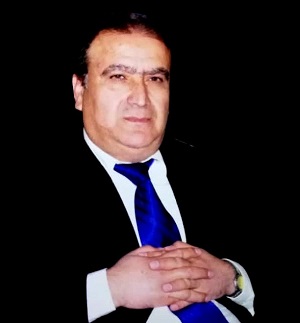ST Interviewwith Dr. Fawaz Zaarour on translation
Dr. Zaarour translated more than 50 prominent international books from English into Arabic, and vice versa. Great books are never bound by the languages they are written in; they travel through languages, spaces, and cultures, and that is what makes a great book great.Dr. Zaarour has as well authored four unpublished books; some of his publications are being taught in the most prestigious Arab and international universities. Hereinafter, highlights on some of Dr. Zaarour’s most prominent recommendable publications:
Who Rules the World? Noam Chomsky:
In an incisive, thorough analysis of the current international situation, Noam Chomsky examines the way that the United States, despite the rise of Europe and Asia, still largely sets the terms of global discourse. Drawing on a wide range of examples, from the sordid history of U.S. involvement with Cuba to the sanctions on Iran, he details how America’s rhetoric of freedom and human rights so often diverges from its actions. Chomsky delves deep into the conflicts in Iraq, Afghanistan, and Israel-Palestine, providing unexpected and nuanced insights into the workings of imperial power on our increasingly chaotic planet. And, in a new afterword, he addresses the election of Donald Trump and what it shows about American society.
Fierce, unsparing, and meticulously documented, Who Rules the World? delivers the indispensable understanding of the central issues of our time that we have come to expect from Chomsky.
Putinism: By Walter Laqueur:
There is no question that tensions between Russia and America are on the rise. The forced annexation of Crimea, the downing of Malaysia Airlines flight 17, and the Russian government’s treatment of homosexuals have created diplomatic standoffs and led to a volley of economic sanctions. In America, much of the blame for Russia’s recent hostility has fallen on steely-eyed President Vladimir Putin and many have begun to wonder if we were witnessing the rebirth of Cold War-style dictatorship.
For two decades, Laqueur has been ahead of the curve, predicting events in post-Soviet Russia with uncanny accuracy. In Putinism, he deftly demonstrates how three long-standing pillars of Russian ideology-a strong belief in the Orthodox Church, a sense of Eurasian “manifest destiny,” and a fear of foreign enemies-continue to exert a powerful influence on the Russian populous. In fact, today’s Russians have more in common with their counterparts from 1904 than 1954 and Putin is much more a servant of his people than we might think.
 Topical and provocative, Putinism contains much more than historical analysis. Looking to the future, Laqueur explains how America’s tendency to see Russia as a Cold War relic is dangerous and premature. Russia can and will challenge the West and it is in our best interest to figure out exactly who we are facing-and what they want-before it is too late.
Topical and provocative, Putinism contains much more than historical analysis. Looking to the future, Laqueur explains how America’s tendency to see Russia as a Cold War relic is dangerous and premature. Russia can and will challenge the West and it is in our best interest to figure out exactly who we are facing-and what they want-before it is too late.
The Iran’s Wars: Jay Solomon:
This is a book rife with revelations, from the secret communications between the Obama administration and the Iranian government to dispatches from the front lines of the new field of financial warfare. For readers of Steve Coll’s Ghost Wars and Lawrence Wright’s The Looming Tower, The Iran Wars exposes the hidden history of a conflict most Americans don’t even realize is being fought, but whose outcome could have far-reaching geopolitical implications.
The Big Stick: Elliot Cohen:
In this book Cohen confronts his critics upfront arguing that the world is not becoming more peaceful, and pushes aside those scholars who would have us believe in “pacific realism,” neglecting the dynamics of regimes, values, and religion, and believing that the greatest threat to the United States is its own intervention policies. Cohen finds softer forms of power such as sanctions to be useful but limited in their effects, and he criticizes those who would characterize our efforts as incompetent. He offers that “the use of force is always fraught. But so too is passivity; it is also a choice. In 2012–16, the Western states refused to intervene in the Syrian civil war, which then metastasized into a much larger Middle Eastern conflict.”
What is Russia up to in the Middle East?:Dmitri Trenin:
In this hard-hitting book, leading analyst of Russian affairs, Dmitri Trenin, cuts through the hyperbole to offer a clear and nuanced analysis of Russia’s involvement in the Middle East and its regional and global ramifications. Russia, he argues, cannot and will not supplant the U.S. as the leading external power in the region, but its actions are accelerating changes which will fundamentally remake the international system in the next two decades.
Report & Interview: Lama Alhassanieh

